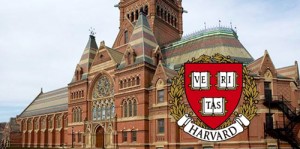In our current world, Harvard is regarded as an excellent university and location where learning, innovation, and altruistic work take place. In The Handmaid’s Tale, like most things, Harvard has been corrupted, and in this case turned into a torture ground.
Salvagings or mass executions take place in a Harvard yard. The bodies of dissidents who were executed hang on the outer walls. This is no longer a respectable place, but rather a horrific one.
I think Harvard is an important symbol and example of how this society is a dystopian version of what used to exist, fueled by religious extremism and ancient oppressive values. The Handmaid’s tale has seriously disturbed me and although it is speculative fiction, I seriously hope that nothing like this ever develops massively across the world, or even in the United States (Gilead). The fear of extremism and the institutionalization of dystopian values against women and minorities has been something on my mind during the current presidential election where someone like Donald Trump is seen as a legitimate, well-standing candidate, someone who could (potentially) become president. Let’s sincerely hope not.

